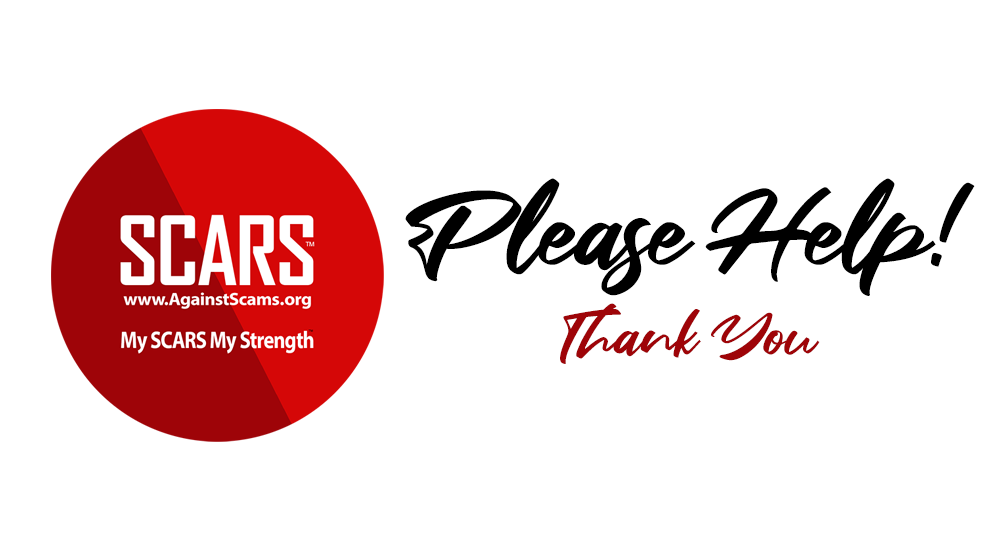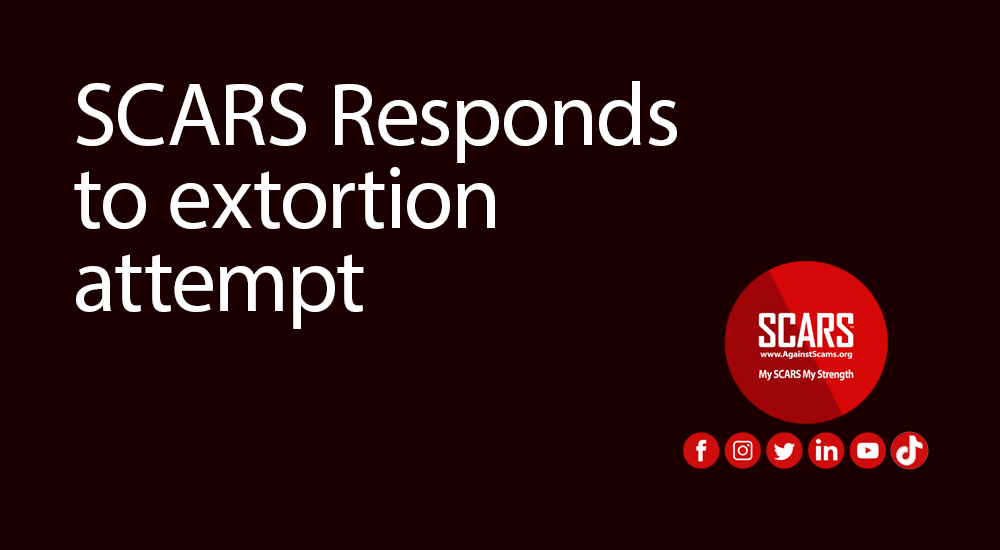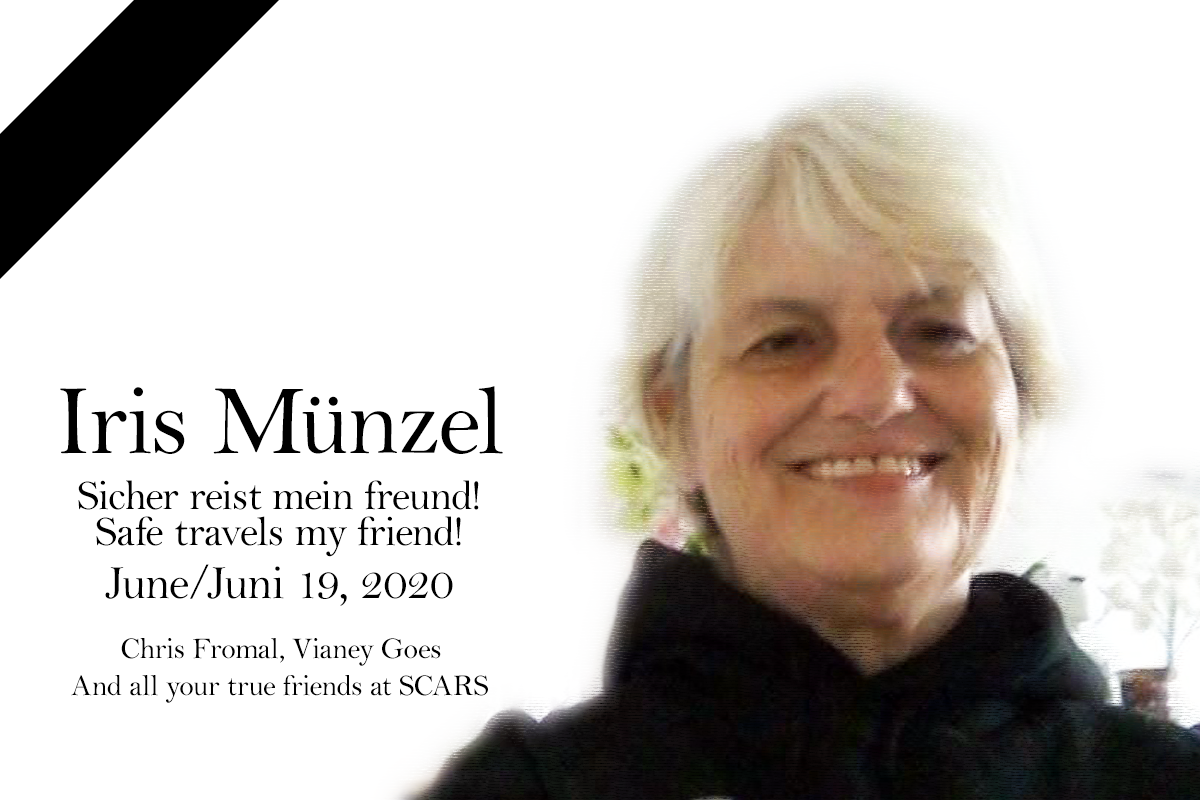
SCARS Institute’s Encyclopedia of Scams™ Published Continuously for 25 Years

Reporting Romance Scams: Why Survivors Often Don’t
By the Society of Citizens Against Romance Scams, Inc. January 15, 2018 ©
Introduction
Why is it that not all romance scams survivors find it necessary to report scams?
After all, a romance scam is truly an emotional assault, a form of rape!
Why don’t they report them to the criminal justice system in order to move forward from their experience? In fact, some feel that the criminal justice system really re-victimizes them in its process. Some survivors find that the services provided by the police are openly hostile to scam victims in many cases, and online support are the only services they feel comfortable pursuing.
This really means that most of these crimes are unknown to governments and they feel little pressure to do very much about it.
While measuring rates of the emotional violence from scams can be difficult, there is no uncertainty in the national data (compiled by SCARS) that the majority of romance scams are never reported to police and government.
It is believed that only 3 to 5% of romance scams are ever reported.
Contrast that with 15.8 to 35 percent of all sexual assaults are reported to the police (at least in the United States)(according to the U.S. Bureau of Justice Statistics).
A survivor’s relationship with the scam offender has a strong effect on the likelihood of reporting. Since most romance scams are not perpetrated by a real identity, and because in most cases the scam relationship was kept secret, the scam victims tend to hide the crime once discovered.
Whereas with rape/sexual assault survivors it depends more on the relationship:
- When a rape or sexual assault offender is an intimate partner or former intimate partner, only 25 percent of sexual assaults are reported to the police.
- When an offender is a friend or acquaintance, only 18 to 40 percent of sexual assaults are reported.
- When an offender is a stranger, between 46 and 66 percent of sexual assaults are reported.
With romance scam victims it tends to depend upon the emotional attachment to the scammer (fake identity), then duration of the scam, and the financial losses.
Sexual Assault Survivors cite the following reasons for not reporting a sexual assault:
- Fear of reprisal
- Personal matter / Did not want family to know / Did not want others to know
- Reported to a different official
- Not important enough to respondent
- Belief that the police would not do anything to help
- Belief that the police could not do anything to help
- Did not want to get offender in trouble with law
- Not enough proof / Fear of lack of evidence
- Fear of the justice system
- Did not know how
- Feel the crime was not “serious enough”
- Unsure about perpetrator’s intent
We see very similar reasons for not reporting romance scams:
- Fear of reprisal / threats made by the scammer
- Personal matter / Did not want family to know / Did not want others to know / it is private and the victim is ashamed
- Reported to a different official / posting information uselessly online
- Not important enough to respondent / the victim did not lose money
- Belief that the police would not do anything to help
- Belief that the police could not do anything to help
- Did not want to get offender in trouble with law
- Not enough proof / Did not keep proof / Fear of lack of evidence
- Fear of the justice system / May have past criminal history
- Did not know how / or confused about the process
- Feel the crime was not “serious enough” / especially true when no monetary loss
- Unsure about perpetrator’s identity
In both cases – romance scams and sexual assault crimes, the crime is a significant traumatic experience that can initially place the victim in shock.
Due partially to low reporting rates, only 9 percent of all rapists get prosecuted. Only 5 percent of cases lead to a felony conviction for sexual assault. Only 3 percent of rapists will spend a day in prison. The other 97 percent of rapists will walk free.
Now contrast that with Romance Scams where less than 0.00001% result in arrests – due mainly to the transnational nature of romance scams, and the inability of governments to cross borders after online offenders. Yet with the right laws and motivation, governments could actually have vast arrest rates regardless of where the scammers are!
What do we do to change these numbers? To get more survivors to report the crimes that had such a negative impact on their lives?
It took generations to change the mindset of sexual assault survivors, so that they felt empowered to report their crimes, and to change the mentality of the criminal justice system to look at rape for what it truly was – an assault. Now we must do the same for the victims of romance scams / online emotional rape. We need to empower them to come forward and change the perception in law enforcement that this was a voluntary crime – it was not – it was an involuntary manipulation.
However, that change with sexual assaults was not overnight, and took the efforts of thousands of advocates working together in each of the localities and countries to change this. Most of the anti-scam advocates are amateurish, uninformed, and focused on their rage or wasted gestures.
Posting scammers to expose and shame then is mostly a wasted effort at reducing the incidence of this insidious crime. Governments have to play the largest role in this, and that means we have to work in unison to coordinate with governments, both to support and educate THEM (that means reporting), and apply proper political pressure for the legal and enforcement changes that are needed.
Victims cannot hide anymore, their voices are too important to waste in silence, or on useless scammer exposing.
Scamming is a giant global business, right up there with drugs and human trafficking. It will take transnational non-governmental organizations (like SCARS) working hand in glove with governments around the world to slow it.
If you are reading this, the odds are high you are a victim. Why not become a survivor and do something about this?
We ask you to join our ranks and become a SCARS Member (www.AgainstScams.org) because in the next few months we will be transitioning to local chapters and aiding you in the ways to change governments around the world, but it starts with adding your voice and standing up against romance scams in a meaningful way!
Will you do it?
Every voice counts!
Also, please please report every scammer on our worldwide network here or at www.Anyscam.com
We all need to Act Against Scams!
Tim McGuinness, Ph.D., DFin, MCPO, MAnth
Chairman, Society of Citizens Against Romance Scams, Inc. [SCARS]
Doral (Miami), Florida, USA
www.AgainstScams.org
-/ 30 /-
What do you think about this?
Please share your thoughts in a comment below!
LEAVE A COMMENT?
Recent Comments
On Other Articles
- Arwyn Lautenschlager on Love Bombing And How Romance Scam Victims Are Forced To Feel: “I was love bombed to the point that I would do just about anything for the scammer(s). I was told…” Feb 11, 14:24
- on Dani Daniels (Kira Lee Orsag): Another Scammer’s Favorite: “You provide a valuable service! I wish more people knew about it!” Feb 10, 15:05
- on Danielle Delaunay/Danielle Genevieve – Stolen Identity/Stolen Photos – Impersonation Victim UPDATED 2024: “We highly recommend that you simply turn away form the scam and scammers, and focus on the development of a…” Feb 4, 19:47
- on The Art Of Deception: The Fundamental Principals Of Successful Deceptions – 2024: “I experienced many of the deceptive tactics that romance scammers use. I was told various stories of hardship and why…” Feb 4, 15:27
- on Danielle Delaunay/Danielle Genevieve – Stolen Identity/Stolen Photos – Impersonation Victim UPDATED 2024: “Yes, I’m in that exact situation also. “Danielle” has seriously scammed me for 3 years now. “She” (he) doesn’t know…” Feb 4, 14:58
- on An Essay on Justice and Money Recovery – 2026: “you are so right I accidentally clicked on online justice I signed an agreement for 12k upfront but cd only…” Feb 3, 08:16
- on The SCARS Institute Top 50 Celebrity Impersonation Scams – 2025: “Quora has had visits from scammers pretending to be Keanu Reeves and Paul McCartney in 2025 and 2026.” Jan 27, 17:45
- on Scam Victims Should Limit Their Exposure To Scam News & Scammer Photos: “I used to look at scammers photos all the time; however, I don’t feel the need to do it anymore.…” Jan 26, 23:19
- on After A Scam, No One Can Tell You How You Will React: “This article was very informative, my scams happened 5 years ago; however, l do remember several of those emotions and/or…” Jan 23, 17:17
- on Situational Awareness and How Trauma Makes Scam Victims Less Safe – 2024: “I need to be more observant and I am practicing situational awareness. I’m saving this article to remind me of…” Jan 21, 22:55
ARTICLE META
Important Information for New Scam Victims
- Please visit www.ScamVictimsSupport.org – a SCARS Website for New Scam Victims & Sextortion Victims
- Enroll in FREE SCARS Scam Survivor’s School now at www.SCARSeducation.org
- Please visit www.ScamPsychology.org – to more fully understand the psychological concepts involved in scams and scam victim recovery
If you are looking for local trauma counselors please visit counseling.AgainstScams.org or join SCARS for our counseling/therapy benefit: membership.AgainstScams.org
If you need to speak with someone now, you can dial 988 or find phone numbers for crisis hotlines all around the world here: www.opencounseling.com/suicide-hotlines
A Note About Labeling!
We often use the term ‘scam victim’ in our articles, but this is a convenience to help those searching for information in search engines like Google. It is just a convenience and has no deeper meaning. If you have come through such an experience, YOU are a Survivor! It was not your fault. You are not alone! Axios!
A Question of Trust
At the SCARS Institute, we invite you to do your own research on the topics we speak about and publish, Our team investigates the subject being discussed, especially when it comes to understanding the scam victims-survivors experience. You can do Google searches but in many cases, you will have to wade through scientific papers and studies. However, remember that biases and perspectives matter and influence the outcome. Regardless, we encourage you to explore these topics as thoroughly as you can for your own awareness.
Statement About Victim Blaming
SCARS Institute articles examine different aspects of the scam victim experience, as well as those who may have been secondary victims. This work focuses on understanding victimization through the science of victimology, including common psychological and behavioral responses. The purpose is to help victims and survivors understand why these crimes occurred, reduce shame and self-blame, strengthen recovery programs and victim opportunities, and lower the risk of future victimization.
At times, these discussions may sound uncomfortable, overwhelming, or may be mistaken for blame. They are not. Scam victims are never blamed. Our goal is to explain the mechanisms of deception and the human responses that scammers exploit, and the processes that occur after the scam ends, so victims can better understand what happened to them and why it felt convincing at the time, and what the path looks like going forward.
Articles that address the psychology, neurology, physiology, and other characteristics of scams and the victim experience recognize that all people share cognitive and emotional traits that can be manipulated under the right conditions. These characteristics are not flaws. They are normal human functions that criminals deliberately exploit. Victims typically have little awareness of these mechanisms while a scam is unfolding and a very limited ability to control them. Awareness often comes only after the harm has occurred.
By explaining these processes, these articles help victims make sense of their experiences, understand common post-scam reactions, and identify ways to protect themselves moving forward. This knowledge supports recovery by replacing confusion and self-blame with clarity, context, and self-compassion.
Additional educational material on these topics is available at ScamPsychology.org – ScamsNOW.com and other SCARS Institute websites.
Psychology Disclaimer:
All articles about psychology and the human brain on this website are for information & education only
The information provided in this article is intended for educational and self-help purposes only and should not be construed as a substitute for professional therapy or counseling.
While any self-help techniques outlined herein may be beneficial for scam victims seeking to recover from their experience and move towards recovery, it is important to consult with a qualified mental health professional before initiating any course of action. Each individual’s experience and needs are unique, and what works for one person may not be suitable for another.
Additionally, any approach may not be appropriate for individuals with certain pre-existing mental health conditions or trauma histories. It is advisable to seek guidance from a licensed therapist or counselor who can provide personalized support, guidance, and treatment tailored to your specific needs.
If you are experiencing significant distress or emotional difficulties related to a scam or other traumatic event, please consult your doctor or mental health provider for appropriate care and support.
Also read our SCARS Institute Statement about Professional Care for Scam Victims – click here to go to our ScamsNOW.com website.









![SCARS™ Special Report: Rubberband Bank Wire Transfer Scams [Infographic] rubberband bank wire trasnfer scams SCARS™ Special Report: Rubberband Bank Wire Transfer Scams [Infographic] rubberband bank wire trasnfer scams](https://romancescamsnow.com/wp-content/uploads/2019/10/rubberband-bank-wire-trasnfer-scams.png)





Thank you for your comment. You may receive an email to follow up. We never share your data with marketers.